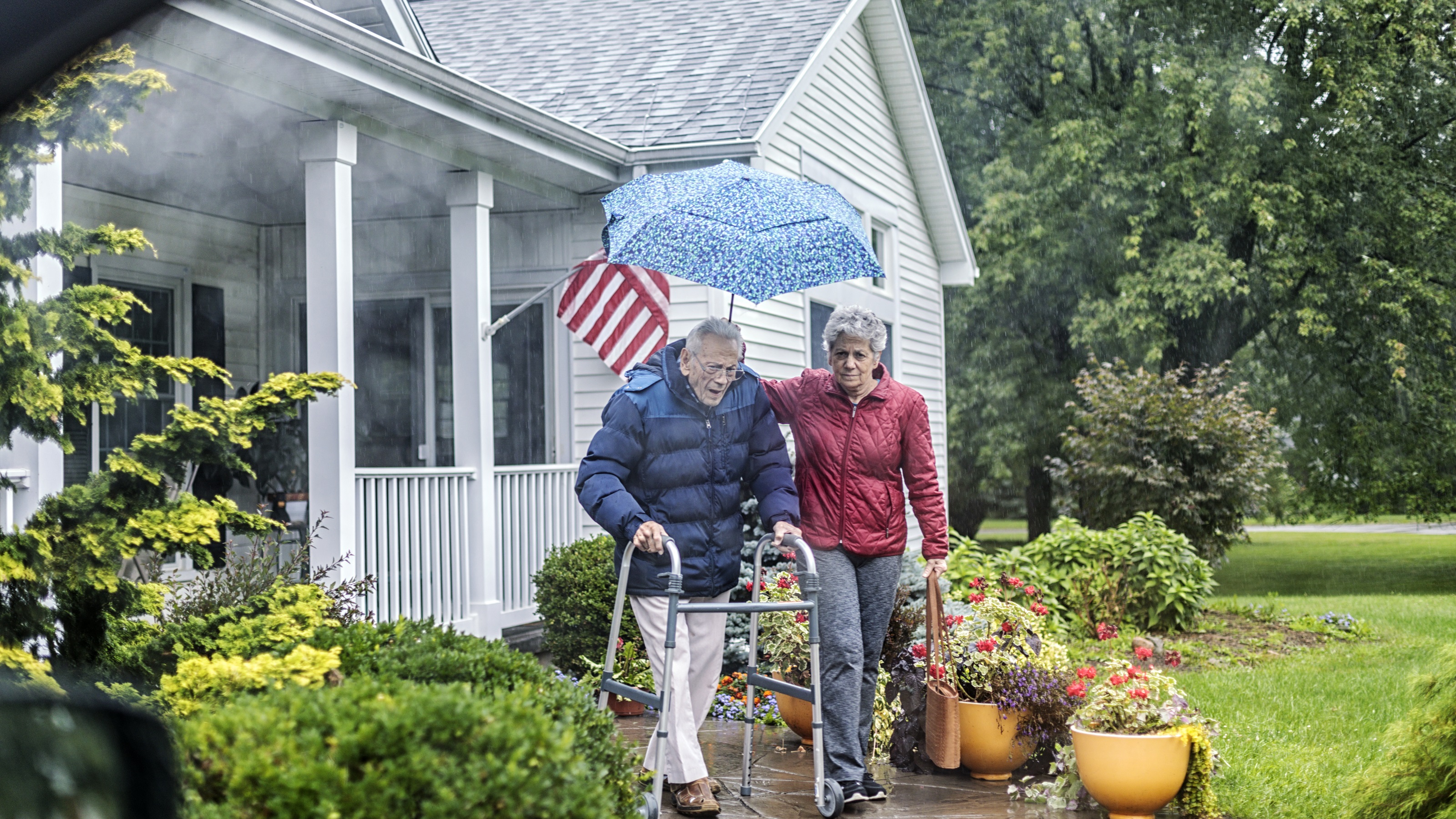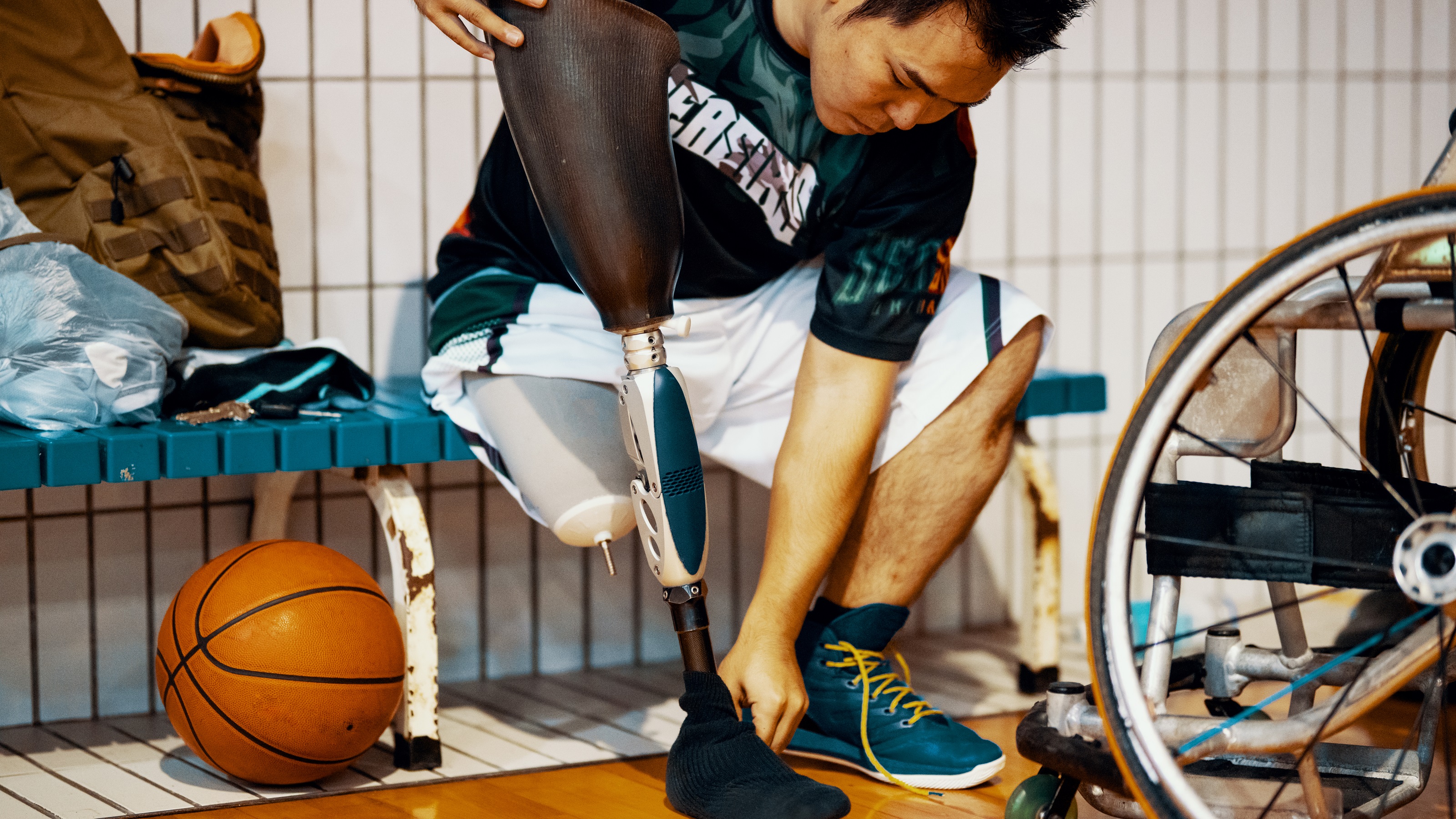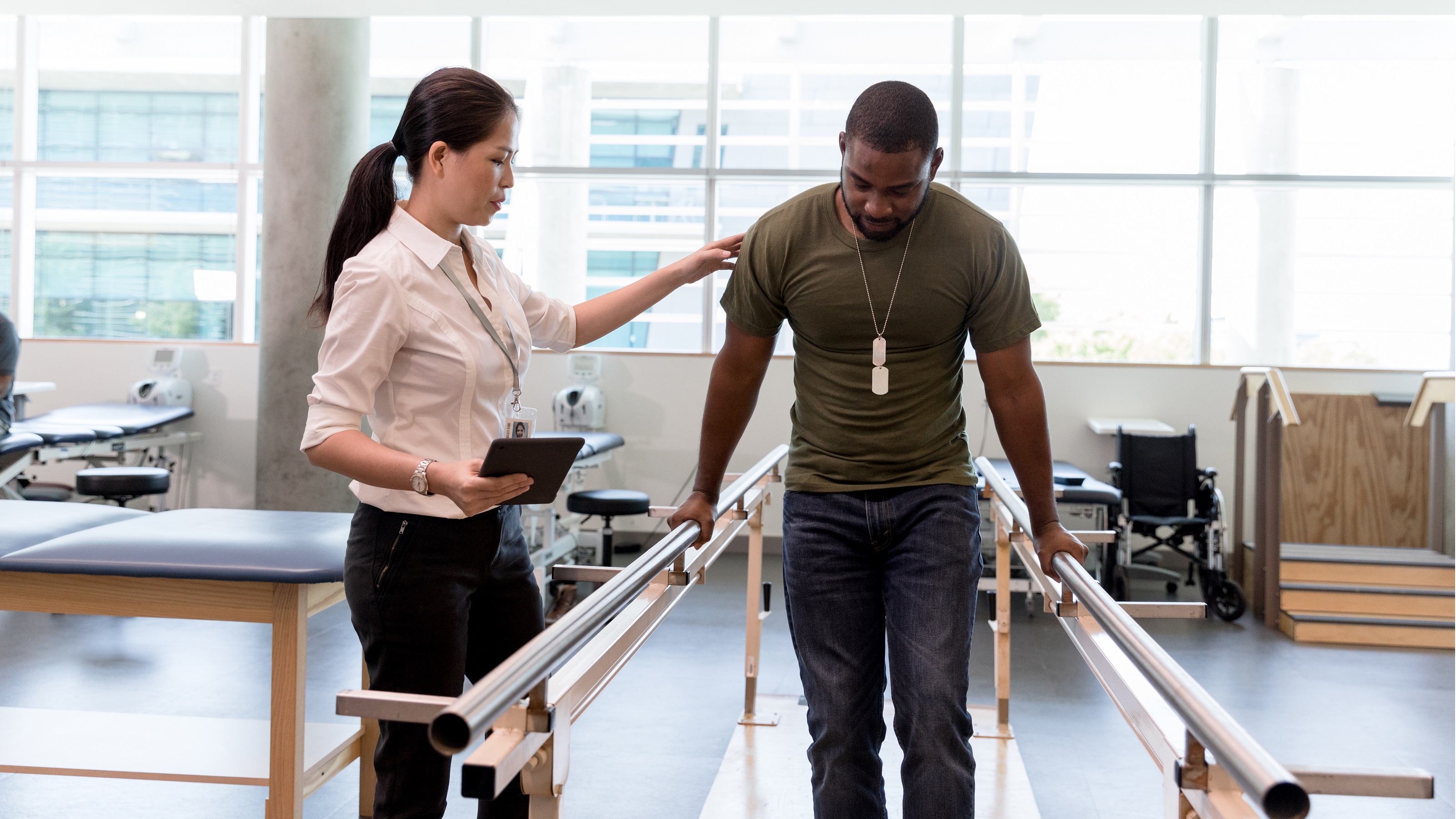5 Military Benefits That Vets Might Not Know They’ve Earned
Veterans could qualify for military benefits that help with housing, transportation, clothing, education and employment and more.


Profit and prosper with the best of Kiplinger's advice on investing, taxes, retirement, personal finance and much more. Delivered daily. Enter your email in the box and click Sign Me Up.
You are now subscribed
Your newsletter sign-up was successful
Want to add more newsletters?

Delivered daily
Kiplinger Today
Profit and prosper with the best of Kiplinger's advice on investing, taxes, retirement, personal finance and much more delivered daily. Smart money moves start here.

Sent five days a week
Kiplinger A Step Ahead
Get practical help to make better financial decisions in your everyday life, from spending to savings on top deals.

Delivered daily
Kiplinger Closing Bell
Get today's biggest financial and investing headlines delivered to your inbox every day the U.S. stock market is open.

Sent twice a week
Kiplinger Adviser Intel
Financial pros across the country share best practices and fresh tactics to preserve and grow your wealth.

Delivered weekly
Kiplinger Tax Tips
Trim your federal and state tax bills with practical tax-planning and tax-cutting strategies.

Sent twice a week
Kiplinger Retirement Tips
Your twice-a-week guide to planning and enjoying a financially secure and richly rewarding retirement

Sent bimonthly.
Kiplinger Adviser Angle
Insights for advisers, wealth managers and other financial professionals.

Sent twice a week
Kiplinger Investing Weekly
Your twice-a-week roundup of promising stocks, funds, companies and industries you should consider, ones you should avoid, and why.

Sent weekly for six weeks
Kiplinger Invest for Retirement
Your step-by-step six-part series on how to invest for retirement, from devising a successful strategy to exactly which investments to choose.
When veterans separate from the armed forces, the U.S. Department of Veterans Affairs (VA) provides numerous benefits to ensure that they have the support they need to succeed in their civilian life. However, for veterans managing the many unknowns of this transition, retaining the full extent of their earned military benefits can be difficult, and many veterans miss out on vital care.
To receive monthly VA disability benefits, veterans undergo a complex process that sometimes involves appeals and long wait times for help. Many resources, including Allsup Veterans Disability Appeal Services, are designed to help guide veterans through this process so they don’t have to navigate their transition alone. However, outside of the VA’s monthly compensation determined by the veterans’ disability rating, there are other veterans accommodations that are not as widely known. The VA offers an extensive range of housing, automobile, education and other benefits for veterans that can be used to address specific issues without drawing from the veterans’ monthly VA compensation.
In a 2022 survey of more than 1,000 veterans, conducted by Allsup Veterans Disability Appeal Services, 48% of veterans indicated that they do not currently understand their disability benefit options and four in 10 disagree that they received adequate benefit guidance when leaving the military – even as that same number of veterans struggle with service-related disabilities.

1. Adaptive Housing Grants and Loan Assistance
Depending on the nature and severity of a veteran’s service-connected conditions, they could qualify for assistance in purchasing a house that accommodates their disability or for updating their current home to better meet their needs.
The Specially Adapted Housing (SAH) grant is designed for veterans with certain disabilities to subsidize the cost of buying a house. Qualifying service-connected disabilities include the loss or loss of use of a limb or other conditions that affect a veteran’s mobility. For fiscal year 2023, veterans can receive up to $109,986 with the SAH grant to put toward a comfortable and functional home.
The VA also offers a Special Home Adaptation (SHA) grant, which applies to veterans with a wider range of disabilities and allocates up to $22,036 to adapt their current home to their needs. This grant covers accommodations such as installing ramps, making bathrooms accessible and widening doorways.

2. Automobile and Conveyance Equipment Grant
For former service members who struggle with a disability that prevents or impairs their ability to drive, the VA offers Automobile Allowance and Adaptive Equipment grants. These grants function similarly to the SHA and SAH grants for veteran housing and can be used to help a veteran purchase a specially equipped vehicle or applied toward adaptive equipment to add safe and necessary accessibility features to their vehicle. These might include power steering, brakes, seats, windows or lift equipment. These modifications can go a long way in helping veterans with disabilities live more independently.

3. Clothing Allowance
Some veterans have disabilities that require the use of prosthetic or orthopedic equipment (such as a wheelchair) or skin conditions requiring medicine that damages clothing. In these cases, the VA has an annual clothing allowance that gives veterans money each year to buy new clothes to replace their damaged items.
Continually replacing clothing damaged by your prosthetic or skin condition can be a frustrating and expensive process. Applying for the annual clothing allowance gives veterans added help.

4. Educational Benefits and Employment Readiness
Many veterans are aware of the GI Bill benefits that help cover the cost of higher education after separating from the military. However, the VA also offers personalized educational and career counseling to help veterans successfully transition out of their service.
Educational counseling can help veterans find a training program or field of study. Career counseling is available for those who are eager to enter the workforce, but need guidance navigating the civilian job market. The program provides continual support, including academic and adjustment counseling, to overcome barriers that might limit a veteran’s academic success.
In addition, for veterans who have a service-connected disability that limits their ability to work, the Veteran Readiness and Employment (VR&E) program helps them explore employment options and pursue the necessary education and training to attain their desired career.

5. Temporary Disability Rating Increases
Even for veterans with disabilities who are expected to improve, many are temporarily unable to work as they undergo surgery or hospitalization. In these cases, even if a veteran won’t have a long-term disability rating, they can apply to get a temporary increase in their rating while navigating their situation. If they are in a hospital for at least 21 days or immobilized following a surgery for at least a month, they can apply for a temporary 100% disability rating. This provides additional monthly VA compensation that affords veterans the time to heal.
For veterans who are managing a severe service-connected disability that is unstable because it hasn’t yet been fully treated, applying for a prestabilization rating can provide temporary disability compensation and benefits until their situation stabilizes. This allows veterans to focus on what matters most: their health.
For veterans with disabilities, VA benefits are designed to make their transition to civilian life as easy as possible – especially when navigating through complex programs with a medical condition.
Many armed service members dedicate years of their young adult lives in the service of our nation – and incur tragic and life-altering injuries. Health care service providers and veterans’ advocates and support organizations must make an effort to help veterans access the disability support services they need so they continue to live comfortable, meaningful and fulfilling lives after they retire from the military.
--
This article was written by and presents the views of our contributing adviser, not the Kiplinger editorial staff. You can check adviser records with the SEC or with FINRA.
Profit and prosper with the best of Kiplinger's advice on investing, taxes, retirement, personal finance and much more. Delivered daily. Enter your email in the box and click Sign Me Up.

Brett Buchanan, a veteran of the U.S. Army, is a VA-accredited claims agent at Allsup and guides veterans through the U.S. Department of Veterans Affairs’ disability appeals process.
-
 5 Vince Lombardi Quotes Retirees Should Live By
5 Vince Lombardi Quotes Retirees Should Live ByThe iconic football coach's philosophy can help retirees win at the game of life.
-
 The $200,000 Olympic 'Pension' is a Retirement Game-Changer for Team USA
The $200,000 Olympic 'Pension' is a Retirement Game-Changer for Team USAThe donation by financier Ross Stevens is meant to be a "retirement program" for Team USA Olympic and Paralympic athletes.
-
 10 Cheapest Places to Live in Colorado
10 Cheapest Places to Live in ColoradoProperty Tax Looking for a cozy cabin near the slopes? These Colorado counties combine reasonable house prices with the state's lowest property tax bills.
-
 Don't Bury Your Kids in Taxes: How to Position Your Investments to Help Create More Wealth for Them
Don't Bury Your Kids in Taxes: How to Position Your Investments to Help Create More Wealth for ThemTo minimize your heirs' tax burden, focus on aligning your investment account types and assets with your estate plan, and pay attention to the impact of RMDs.
-
 Are You 'Too Old' to Benefit From an Annuity?
Are You 'Too Old' to Benefit From an Annuity?Probably not, even if you're in your 70s or 80s, but it depends on your circumstances and the kind of annuity you're considering.
-
 In Your 50s and Seeing Retirement in the Distance? What You Do Now Can Make a Significant Impact
In Your 50s and Seeing Retirement in the Distance? What You Do Now Can Make a Significant ImpactThis is the perfect time to assess whether your retirement planning is on track and determine what steps you need to take if it's not.
-
 Your Retirement Isn't Set in Stone, But It Can Be a Work of Art
Your Retirement Isn't Set in Stone, But It Can Be a Work of ArtSetting and forgetting your retirement plan will make it hard to cope with life's challenges. Instead, consider redrawing and refining your plan as you go.
-
 The Bear Market Protocol: 3 Strategies to Consider in a Down Market
The Bear Market Protocol: 3 Strategies to Consider in a Down MarketThe Bear Market Protocol: 3 Strategies for a Down Market From buying the dip to strategic Roth conversions, there are several ways to use a bear market to your advantage — once you get over the fear factor.
-
 For the 2% Club, the Guardrails Approach and the 4% Rule Do Not Work: Here's What Works Instead
For the 2% Club, the Guardrails Approach and the 4% Rule Do Not Work: Here's What Works InsteadFor retirees with a pension, traditional withdrawal rules could be too restrictive. You need a tailored income plan that is much more flexible and realistic.
-
 Retiring Next Year? Now Is the Time to Start Designing What Your Retirement Will Look Like
Retiring Next Year? Now Is the Time to Start Designing What Your Retirement Will Look LikeThis is when you should be shifting your focus from growing your portfolio to designing an income and tax strategy that aligns your resources with your purpose.
-
 I'm a Financial Planner: This Layered Approach for Your Retirement Money Can Help Lower Your Stress
I'm a Financial Planner: This Layered Approach for Your Retirement Money Can Help Lower Your StressTo be confident about retirement, consider building a safety net by dividing assets into distinct layers and establishing a regular review process. Here's how.
